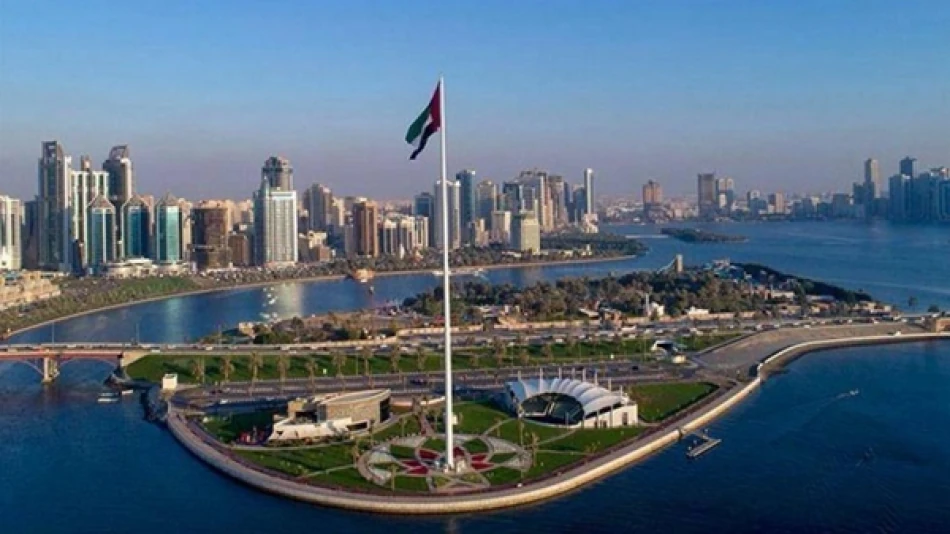
Startup Incubator 'Ruwad' Fuels Growth: 5 Projects Funded, 23 Training Programs Hosted in Sharjah
Sharjah's Entrepreneurship Drive Gains Momentum with AED 1.12 Million in Direct Funding
Sharjah's commitment to nurturing local entrepreneurship is paying dividends, with the emirate's flagship business incubator approving over AED 1 million in direct funding during the first half of 2025 while attracting 237 new ventures to its ecosystem. The results signal a maturing startup landscape that could position Sharjah as a serious competitor to Dubai and Abu Dhabi in the regional entrepreneurship race.
Strong Funding Performance Reflects Growing Confidence
The Sharjah Entrepreneurship Support Foundation (Rowad) distributed AED 1.12 million across five projects in the first six months of 2025, according to its annual report. The funding split reveals strategic priorities: three projects in the professional services sector and two in traditional commerce, suggesting a balanced approach between knowledge-based and conventional business models.
This funding level, while modest compared to venture capital flows in Dubai or Abu Dhabi, represents significant progress for Sharjah's entrepreneurship ecosystem. The emirate has historically focused on manufacturing and trade, making this pivot toward innovation-driven startups particularly noteworthy.
Impressive Acceptance Rates Signal Quality Pipeline
Perhaps more telling than the funding figures is Rowad's 83.5% acceptance rate for membership applications. Of 284 applications received, 237 projects gained approval—a remarkably high success rate that suggests either strong applicant quality or effective pre-screening processes.
The project breakdown shows commercial ventures dominating at 57.8% (137 projects), followed by professional services at 41.8% (99 projects), with just one industrial project. This distribution mirrors broader economic trends across the UAE, where service sectors increasingly drive growth.
Gender Distribution Reflects Regional Patterns
Male entrepreneurs led 61.2% of approved projects, while female-led ventures comprised 31.6%, with joint ventures making up the remaining 7.2%. These figures align closely with entrepreneurship patterns across the Gulf, where women's business participation continues expanding but hasn't yet reached parity.
Government Procurement Strategy Shows Economic Impact
Rowad's most strategic move may be its government procurement initiative, which channeled AED 3.6 million in public purchases to member companies. This approach mirrors successful startup ecosystem development in countries like South Korea and Israel, where government contracts provide crucial early revenue streams for emerging businesses.
The foundation registered 144 member projects as suppliers in the Central Finance Department's portal, creating a direct pipeline between startups and government demand. This systematic approach to procurement could prove more valuable than direct funding in building sustainable businesses.
Training and Development Infrastructure Matures
The foundation's educational efforts reached 660 participants through 23 training programs, with women comprising 71% of participants (469 female vs. 191 male entrepreneurs). This gender split in training participation, contrasting with the male-dominated project leadership, suggests women may be entering entrepreneurship at earlier stages or seeking more preparation before launching ventures.
The launch of the third edition of the "Entrepreneurship Ambassadors" program within mini-master's and professional diploma tracks indicates institutional learning and program refinement—hallmarks of maturing support ecosystems.
Regional Competition and Strategic Positioning
Sharjah's entrepreneurship push comes as UAE emirates increasingly compete for startup talent and investment. While Dubai dominates with its international focus and Abu Dhabi leverages sovereign wealth, Sharjah appears to be carving out a niche in supporting local Emirati entrepreneurs specifically.
The foundation's 161 field visits to member companies and 282 entrepreneur interviews demonstrate a hands-on approach that larger, more international incubators often cannot match. This personalized support model could prove particularly effective for early-stage ventures requiring intensive guidance.
Economic Diversification Through Entrepreneurship
Hamad Ali Abdullah Al Mahmoud, head of Sharjah's Economic Development Department, positioned these results within broader economic diversification goals. The emphasis on supporting Emirati youth entrepreneurs reflects national priorities around reducing oil dependence and building knowledge-based economies.
The high renewal rates—185 projects renewed for second and third years, with 91 extending to fourth and fifth years—suggest that supported ventures are achieving sustainability rather than simply launching and failing quickly.
For investors and entrepreneurs evaluating the UAE's startup landscape, Sharjah's focused approach on local talent development and government procurement integration presents an interesting alternative to the more internationally-oriented ecosystems in neighboring emirates. The question now is whether this locally-rooted strategy can scale to compete with more globally-connected startup hubs.
Most Viewed News

 Layla Al Mansoori
Layla Al Mansoori






